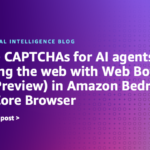Nvdia (NASDAQ:NVDA), Microsoft (NASDAQ:MSFT) and a handful of other big tech firms arose as clear leaders in enterprise artificial intelligence adoption according to an exhaustive survey released by UBS this week.
The survey also found positive indicators for ServiceNow (NOW), Adobe (ADBE), Snowflake (SNOW) and Amazon Web Services (NASDAQ:AMZN).
Just over half, 52%, of respondents indicated their company has gone live with at least one generative AI use case. This was up from 39% in a survey six months prior.
However, only 10% of organizations were using AI use cases at scale, meaning the significant ramp up in AI monetization is more likely in 2025 rather than the second half of 2024.
Initial AI use cases were relatively small in scope, as the average expected, AI dollar spend in 2024 was $1.57M, compared to $1.65M in 2023, with the figure nearly doubling to $2.95M in 2025.
“At the GPU level, Nvidia unsurprisingly remains the most preferred commipute platform for both training and inference, with respondents already showing a strong intent to leverage Blackwell even six months ahead of Blackwell products shipping,” said UBS analysts led by Karl Keirstead.
Nearly 70% of respondents indicated they were using some sort of Nvidia hardware as an LLM training platform. Another 21% said they were using AWS Trainium and 4% were using Intel’s (INTC) Gaudi.
Microsoft-backed OpenAI models ChatGPT 4 and ChatGPT 3.5 are the most used LLMs by the companies surveyed. However, Meta’s (META) Llama ranked third.
Meanwhile, Microsoft and AWS were the top two cloud infrastructure providers for AI. Google Cloud ranked third.
ServiceNow was the most utilized internal IT vendor for AI use cases and ranked first in terms of external sales support for AI, just ahead of Salesforce (CRM).
In terms of text-to-image creation AI tools, the majority of firms preferred OpenAI DALL-E and Adobe Firefly.
Microsoft GitHub Copilot was the overwhelming choice used for AI-based auto-programming tools for developers at 65%.
UBS surveyed information technology executives at 130 organizations about their AI implementation plans at the chip, model, cloud infrastructure, data, security and application software levels for this report.










